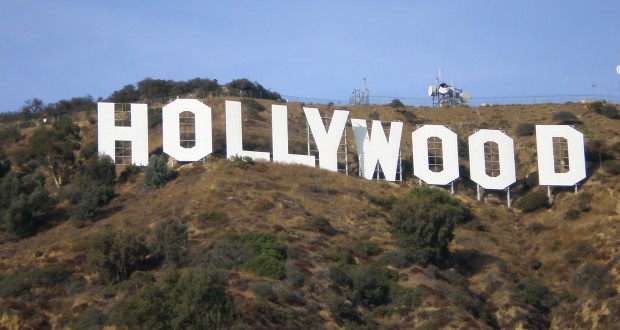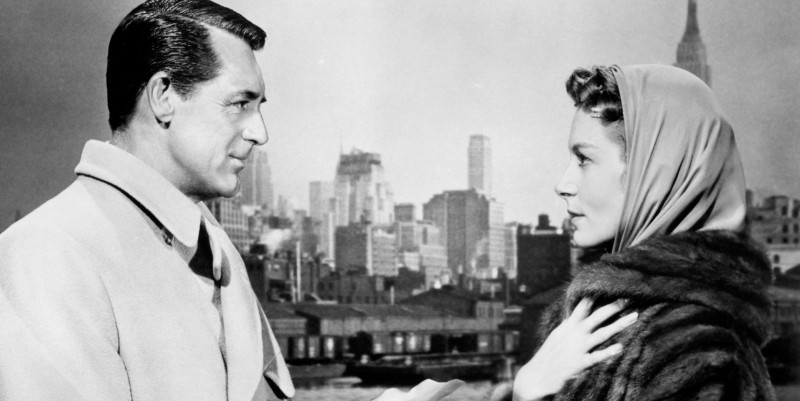It has always been easy to travel as an English speaker. Over the years, I’ve met many Europeans around my age and I feel terribly ignorant and lazy. Most of them speak numerous languages – fluently. I speak English, and not always terribly well. But I do like to travel and I like to be lazy when I do – not bothering to learn more than ‘hello’, ‘goodbye’, ‘please’, and ‘thank you’ in native tongue.
I have just come back from Paris, a city that I absolutely love. It was my fifth visit. Yes, I admit, I really should learn some more French now that I tend to visit once a year, but didn’t I already cover this? I’m lazy! However, this time, I found it much easier to converse. I always try to speak in as much French as my limited knowledge can allow, but on this trip, I found that everyone switched to English with me almost immediately. It is hard to try when they encourage me to be lazy!
 As it turns out, earlier this year the Parisian government launched a campaign to encourage natives to speak English to the tourists. The campaign, ‘Do You Speak Touriste?’ was devised in order to curb the number of complaints the city receives from tourists about rude tourism and services staff. Personally, I never found the Parisians very rude, in fact, I far prefer Parisians to Londoners (despite the higher number of smokers).
As it turns out, earlier this year the Parisian government launched a campaign to encourage natives to speak English to the tourists. The campaign, ‘Do You Speak Touriste?’ was devised in order to curb the number of complaints the city receives from tourists about rude tourism and services staff. Personally, I never found the Parisians very rude, in fact, I far prefer Parisians to Londoners (despite the higher number of smokers).
Wandering through the streets of Paris, I noticed that all of the film posters were for American films. While not as numerous as in the US or the UK, there was still at least one Starbucks in every shopping district. In every metro station there were ads for Converse, and all directions are given in both French and English. The TV is full of dubbed American television shows and they know the US celebrities just as they do everywhere else in the West.
The cultural domination of the US
This phenomenon is not something that can only be seen in Paris. It is happening throughout the West (and even elsewhere, as the Internet makes it possible for people to access all kinds of things their governments don’t want them to see). In the UK and Australia our cinemas and TV listings are full of US content, our celebrity gossip tends to focus on US celebrities, and even our language has been changing through the influence of the US.
That isn’t to say that there aren’t instances of homegrown media that make a splash, but they are usually unable to compete in the long run. The money just isn’t there, nor really the global appeal. There have been plenty of good Aussie TV shows that do exceedingly well at home, but they never get picked up elsewhere. It seems that the global market isn’t interested. So why do US films and TV shows appeal to such a wide audience?
I’m not sure it is necessarily about the appeal of the creative works produced in the US and more about the money poured into the industries, the large home market, and the exposure created by globalization. This is, of course, only my opinion – there are a number of reasons why the US has been able to achieve cultural dominance over the years. UK and Australian governments, like many others, desperately try to encourage homegrown films and television series, but there just isn’t enough money being put in – and not enough of an audience to warrant a more hefty investment.
The Chinese threat
 The reign on the US as the biggest money spending market, and therefore the most influential market in what content is created, may be coming to an end. China is an increasingly important market for US-produced films, especially the big Blockbusters. The Chinese market now has the power to make or break a big budget film.
The reign on the US as the biggest money spending market, and therefore the most influential market in what content is created, may be coming to an end. China is an increasingly important market for US-produced films, especially the big Blockbusters. The Chinese market now has the power to make or break a big budget film.
This was particularly evident with Iron Man 3. Marvel and Disney courted controversy with the film’s release when they added an extra four minutes of footage to the Chinese release of the film. The content was written and directly specifically for the market, including a Chinese doctor and acupuncturist, and featuring a smoking hot Chinese celebrity (Fan Bingbing).
China is now the world’s second biggest film market after the US. It is likely that Iron Man 3 will turn out to be the new norm rather than an odd duck. More and more films Hollywood is churning out will be concerned about their global appeal, and specifically their appeal in China. So, if you were hoping you would see less of the stereotypical Eastern European baddies in the next summer action Blockbuster, think again.
Tea and crumpets: The appeal of the outrageously British TV
Downton Abbey is hugely popular in its home country, but it is really its massive success abroad that has singled it out. Over 120 million Americans watch the show, making it one of PBS’s most successful shows. It is also hugely popular in Australia, Sweden, the Middle East, Russia, and Korea (among other markets). Why is such a peculiarly British series so popular?
It isn’t the first to make a splash overseas. Doctor Who is another British institution that has hit the big time in the US. They love it. I have to admit, it has always been a little bit too silly for my taste (and yes, I know that might sound odd given the ridiculously silly things I do love, but Doctor Who hasn’t managed to float my boat since they added technicolour).
The fascination with British TV has been around for a while now. Does everyone remember Hyacinth Bucket (‘Bouquet’)? I do. And I watched Keeping Up Appearances both in Australian and the US. It is also common for the US market to love a British show and decide that they must mold it into what they think it should be. For instance, both Red Dwarf and The Vicar of Dibley were highly successful in the US. However, the studios thought they could make more money out of the ideas, and launched failed projects to create US versions of the shows. You can find them online if you look – the US Red Dwarf series makes me absolutely cringe (and feel terribly sorry for Craig Bierko who gave up the role of Joey in Friends to play Lister).
The US versions haven’t always been terrible failures. I admit that I saw (and loved) the US version of Queer as Folk long before I even knew it had been a British series. While I’m not really a fan of either (hate me if you must), I find the US take on Ricky Gervais’s awkward humour in The Office far more tolerable. I hate watching a show that I need to cringe my way through. The latest show to get a US revamp is Gavin & Stacey. Us & Them will air on Fox next year, starring Gilmore Girls alum, Alexis Bledel.
 Pop Verse Pop Culture Universe
Pop Verse Pop Culture Universe







